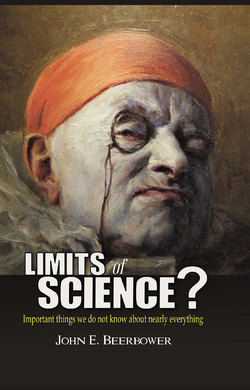Читать книгу Limits of Science? - John E. Beerbower - Страница 28
На сайте Литреса книга снята с продажи.
Complexity and prejudice
ОглавлениеA full evaluation of Kuhn’s thesis is not material to the purposes here. But, there are a couple points of interest. One is that the process of science is more nuanced, complex and haphazard than suggested by our discussion above of explanatory models and falsifiability. Another is the asserted connection between theories in science and the concepts or structures that we use more broadly to understand and explain things within our society and culture.
Here let me introduce an example that should be accessible to everyone. To the apparent surprise of many, we now are told that the evils of fat and cholesterol in our diet have been seriously overstated for decades, based upon faulty science. The real culprits instead are sugars and carbohydrates. The challenges to the accepted wisdom arose out of studies that began appearing in 2010. See, e.g., Joanna Blythman, “Butter is bad—a myth we’ve been fed by the ‘healthy eating’ industry,” The Guardian, 23 October 2012; Matt Ridley, “Experts have been feeding us a big fat myth,” The Times, Opinion, 30 June 2014. Finally, the U.S. Dietary Guidelines Advisory Committee has made it official. Anahad O’Connor, “Nutritional Panel Calls for Less Sugar and Eases Cholesterol and Fat Restrictions,” The New York Times, February 19, 2015. In other words, the government had actively sponsored health advice and instructions that have probably contributed to the creation of a serious new health threat in the form of obesity and associated disorders like diabetes.
In response to the question of how this could have happened, some have suggested that it is the result of methodological flaws: the use of observational rather than experimental data and the confusion of correlation with causation. See, e.g., Nina Teicholz, “The Government’s Bad Diet Advice,” The New York Times, The Opinion Pages, February 20, 2015. I think that the commentators have been overlooking one of the principle reasons that the bad advice becomes accepted dogma—it makes sense, based upon our (incorrect or, at least, incomplete) understanding of how things worked in the body (eating high cholesterol food results in high cholesterol in the blood). The observational studies of groups of people over time threw up apparent associations between types of diets and health issues; our common sense of how food affected our bodies gave rise to the conclusions about causality.
The obvious obstacles to the performance of long-term clinical or experimental trials on humans prevented the most direct testing of the hypotheses. Only now are we glimpsing, as discussed below in connection with the roles played by bacteria and viruses, how much more complicated the relationship is between food and health. The mistake was the overconfidence placed by the public advocates and policy makers on the correctness of the scientific conclusions. Models are inevitable, models matter and models are likely to be wrong.
The paradigms that are used within a society are clearly relevant to the nature of the members understanding of the world around them and to the types of explanations that they will find satisfactory. But, what is the relationship between the changing paradigms and truth or reality? Is there an expected or likely relationship or is any relationship purely coincidental?
To the modern man or woman, it is probably not very persuasive to assert that there is no reality, that all perception is illusion. It also would not be very modern to claim that there is an ideal reality that exists separate from the world we inhabit, which world is merely an approximation of the perfect forms. It is probably more acceptable to assert that all perception is inherently subjective, with the result that we may never be able to see reality as it really is. We struggle with the belief that there is something that constitutes reality but are limited in our abilities to see it or comprehend it. Michael Polanyi put it as follows: “scientific discoveries are made in search of reality—a reality that is there, whether we know it or not. The search is of our own making, but reality is not. …For the scientist’s quest presupposes the existence of an external reality. … [However,] [a]ttempts to eliminate these indeterminacies of science merely replace science by a meaningless fiction.” “The Creative Imagination,” in Kransz (ed.), The Idea of Creativity, pp.160, 161. In other words, our quest for knowledge is premised upon the assumption that there is such a thing as truth or reality, but we would be foolish to confuse even our best scientific theories with it.
